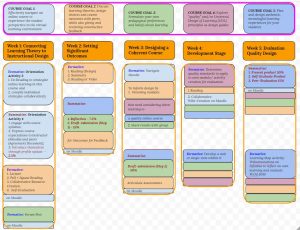Course Syllabus – FLO Design
![]()
Welcome to the FLO – Facilitating Online Learning – Design Spring 2019
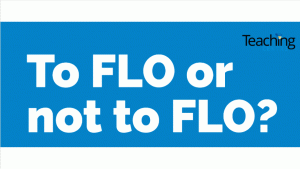 |
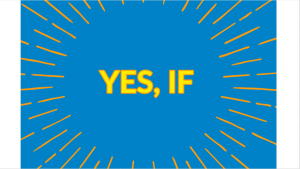 |
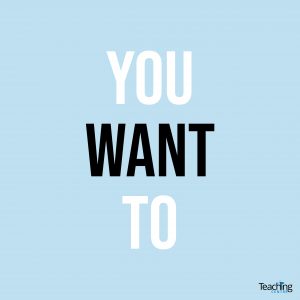 |
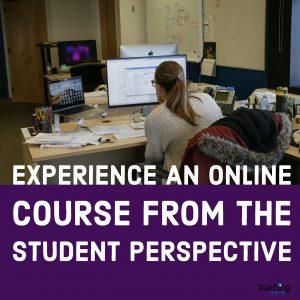 |
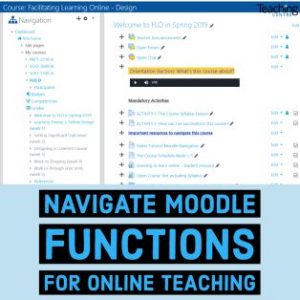 |
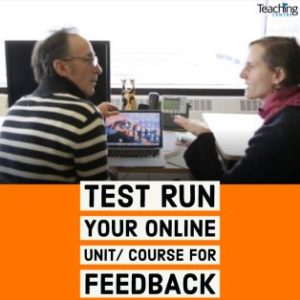 |
Course Dates: March 18 – April 28, 2019 – 5 weeks with facilitation (suggested time investment 3 hours/ per week + time for unit design)
Course Instructor: Joerdis Weilandt (with assistance from my Teaching Centre peer in week 2: Dave Adams)
Land Acknowledgement:
I am grateful to be facilitating this course on Kainai land– (Blood tribe of the Niitsítapi = Blackfoot Confederacy), where five First Nations (the Siksika (Blackfoot), Piikani (Peigan), Stoney-Nakoda, and Tsuut’ina (Sarcee)) signed Treaty 7 with white settlers in 1877. Since I moved to Canada, I have been making an conscious effort to decolonize my life and teaching. Learning Blackfoot, making friends, and reading resources like these have been greatly helpful.
Pre-requisites:
An honest interest in high-quality facilitation of online learning is key to success in this course. You should have a basic familiarity with personal computers – without this, the course is too frustrating. You will allow me to differentiate my teaching to better speak to all of your different backgrounds by doing this very brief pre-assessment before you start the course.
Course Enrolment: You can access our course by sending an email to joerdis.weilandt@uleth.ca. I will then enrol you and confirm the enrolment by emailing you soon after.
Course Description:
This course is designed to provide you with a safe space, in which you can formulate your own pedagogical preferences and beliefs about learning. The understanding of different pedagogical approaches will prepare you to design, plan and prototype authentic meaningful learning experiences for your students in your future online courses. To help you see what your future online students will see, you will navigate our online course from the student perspective. This will allow you to become aware of challenges with regards to course navigation, comprehension of goals and instructions, engagement and assessment.
Who is your facilitator?
Call me by my first name – Joerdis (she/ her). I am very excited to be working with you in the next 5 weeks. Being a teacher trainer for teachers of German in all possible educational settings in Northern America (K-12 to Higher Education) as well as an (online) language instructor, allows me to connect with peers and students over vast distances. I have taught in face-to-face classrooms since 2001, but started teaching in the online modality since I came to Canada in 2011.
Most of my professional interactions in my full-time assignment as an educational developer for the UofL Teaching Centre happen face-to-face during the day. However, much of my online (language) teaching takes place in the evenings and/ or on the weekends, when my working students and I are “off” our primary job clocks.
Being a passionate open educator, it’s kind of logical that I do a lot of my own learning online as well. I’ve always had a strong interest in plants and their medicinal/ nutritional properties, for instance, which is why I am currently exploring the online student perspective in a 3-year online Herbology program, which I hope will augment my foraging in the Coulees and Rocky Mountains.
What kind of teaching and learning will you experience in this course?
The teaching in this course happens from a constructivist perspective. What that means for you is that you will learn by doing; or more precisely, you will build your competence in the design of online courses by actually designing an online course or a module or resource for it. Your learning will most likely not be the most profound if you do it last minute and alone, which is why the learning activities are designed to provide you with weekly opportunities for practice, reflection and interaction. All activities are also good measures for you and me to assess your progress (and adjust strategies of learning and teaching if needed). Sharing your thoughts, ideas and hesitations in focused discussions will benefit the learning of us all as by providing valuable insights into the complexity of online course design.
What are the Course-level Outcomes you can achieve when completing this course successfully?
COURSE GOAL 1: Effectively navigate an online course to experience the student perspective in the virtual learning environment
measurable objectives: You will be able to navigate our course independently and as an academic collaborator by accessing the resources and doing the activities in the appropriate places and within the timeline of our course. When faced with challenges, you apply effective communication strategies to find/ and or offer solutions. Your interaction with the content and your instructor/ peers shows an awareness for your role within the environment.
assessment: Syllabus activity in the Orientation Section to this course (2.5%), lead discussions online, add data base, access content and quizzes, write a wiki entry, progress report, presentation
in this course: Activities to help you navigate a variety of different materials and resources in Moodle that are sequenced to guide progressive learning.
COURSE GOAL 2: Discuss learning theories, design choices and course outcomes with peers, while also giving and receiving constructive feedback
measurable objectives: You will explore current learning theories, instructional design approaches, related frameworks, models and quality standards. Your comments and feedback show your ability to successfully contribute to and enrich the course discussions on a number of academic subjects. Your participation in the course discussions also adds to the sense of community in the course.
assessment: Jigsaw reading activity Week 1 + Description of the outcome(s) in your online module/ Week 2
in this course: Activities to help you present current learning and design theories and articulate your own approach to (online) teaching
COURSE GOAL 3: Formulate your own pedagogical preferences and beliefs about learning
measurable objectives: You demonstrate your profound understanding of different pedagogical approaches by formulating your own preference/ beliefs and responding appropriately to your peers’ individual expressions of their own pedagogical viewpoints.
assessment: Reading Activity + Video Vignette activity in week 1, design draft initial stage (week 2) , development of identified area (activities/ content) (week 3)
in this course: Activities to help you support your deliberate choices for online course design
COURSE GOAL 4: Explore “quality” and/or Universal Design of Learning (UDL) principles as design guides
measurable objectives: You will be able to demonstrate your ability to appropriately plan and evaluate high-quality online learning and assessment activities, materials and environments by applying a quality framework to your design. You will also be able to give constructive feedback to your peers.
assessment: Present your plan + Comment on a peer’s plan in week 3/4
in this course: Activities to help you apply UDL principles to the design of their online units/ modules
COURSE GOAL 5: Plan and design authentic, meaningful learning experiences for your students and demonstrate an ability to apply principles of good design to the evaluation of your own as well as your peers online module(s)
measurable objectives: You will be able plan and implement authentic meaningful learning experiences for your future online students.
assessment: Design prototype online learning unit + evaluate your peers’ modules week 4 + 5
in this course: Activities to help you design and evaluate your own online module/ course
Course Road Map
In the next five weeks, we will move through the different stages in the design of an online course. We will follow the ADDIE Sequence.
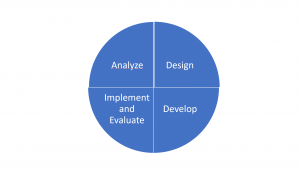
| Week 1 | We will connect learning theories to Instructional Design (ID) | |
| Week 2 | 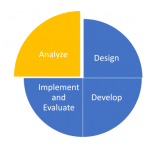 |
You will be Setting Significant Outcomes for your own future online course |
| Week 3 | 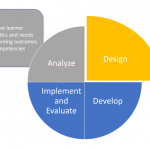 |
You will familiarize yourself with the elements that are important to Designing a Coherent Course |
| Week 4 |  |
You will enter the Development Stage, in which you start creating your online module or resource(s). |
| Week 5 |  |
We will evaluate the quality of online courses. |
You can click on this link to download the road map for the course. It is a visual representation to show you how you will achieve the the five course goals over the next five weeks. The colours for the outcomes are deliberately chosen to indicate which specific activities can help build specific competencies.
What does online learning mean for you?
You might be among those students who choose an online course for the flexibility if offers you to do the readings and activities at times that best fit your personal schedule. That’s a valid reason to have, but I want to caution you that in order to succeed online you will need to develop your own set of learning strategies. As we won’t “see” each other in the literal sense, you will need to make sure you manage to get enough FLO time in the next 5 weeks. If you’ve never taken an online course before, you should look at the resource: Learning to learn online. Its a good book to help you become a better learner online. The reality is that online learning requires extra efforts to connect with the content and your peers. I hope to have built a virtual space that can come to life with you, me and the other learners working jointly within it.
Office Hours: Please reach out any time out to arrange for a face-to-face or virtual appointment.
Course Communication:
How will I as the instructor communicate with you?
Within our Moodle course, I will use the Moodle Teacher Announcements to inform you of important course updates, to guide you through the weekly sections and to provide general feedback to you and the class on the common strength and shared weaknesses I notice. I will pair this feedback with tips and resources to help you improve your performance in this course. I will monitor the Open Forum on Moodle several times during the day and respond as quickly as I can. I will not respond to posts at night time (after 8 pm), and there will be delays on the weekend.
For individual feedback and personal messages within the UofL context, however, I will revert to using your private UofL email contacts to keep matters confidential.
How will you communicate with your peers and the instructors to discuss all course-related matters?
All course-related questions, comments, explanations and so on will need to be posted in our Open Forum on the website. Do not send them in individual emails to me. Instead be considerate of your peers and my time. By sharing your concerns and relevant information, you will benefit all participants in this course, who most likely will have similar questions and/ or comments.
What can you do when you have personal matters to discuss with the instructor?
In case of personal matters, please reach out to me in due time via email (joerdis.weilandt@uleth.ca). If you give me advance notice of changes in your priorities, we can work out a solution. There will be no accommodation after the fact, so please take the courage to let me know as soon as you know!
What can you do when you want to provide feedback that can help improve specific elements in this course?
Your feedback is important to me and vital to the further development of this course, so please share your suggestions with me in our Open Forum or if you wish to keep it anonymous, post it into this Etherpad. I will assess the validity of your suggestion and let you know what I can do to accommodate your needs.
Our Course Agreement
It is important that we all agree on the conduct in this course. This is the reason why I encourage you to comment on the things that you think all students should or shouldn’t do in this course. You can post your contributions in our collaborative Course Agreement document by doing the Syllabus Activity in the Orientation Section on top of our Moodle course (to be finished by the end of week 1).
Readings and Activities
You can access all course materials and educational tech tools conveniently from our Moodle course. Being an advocate for Open Education, I hope your learning will be inspired by the open content I chose for this course. However, not all content is openly accessible. In the cases were we needed additional for purchase materials, I have picked quality articles and book chapters, for which we have free campus access though our University Library Subscriptions.
Technology used in this course
In the next 5 weeks you will be using a range of technological features within Moodle as well as outside of it through external educational technology that demonstrate how to foster individual learning and build productive community in an online environment. I make it a point to deliberately and carefully choose digital technology that protects your privacy, promotes open access, encourages sharing of expertise and enhances learning in ways not otherwise possible. If despite my best efforts, specific educational tools have caused unintentional harm, please let me know, so I can take immediate action to remedy these circumstances. Help me improve the technology used in this FLO or its future iterations by doing this brief FLOd2019 Technology Survey.
Course Grading
In this course, there will be no specific letter grades, meaning it is designed for PASS or FAIL. If you do the two mandatory activities every week, follow-up on the feedback you receive and present your online modules/ activities to our cohort at the end, you will pass this course. See the Moodle Gradebook for the weight distributions of the summative assessments.
Course Assignments
There are different learning activities that will contribute to the progression in your learning. Every week, you will do two multi-step activities that will culminate in the assessments, which are designed as measures of your progress. Please read the weekly instructions closely to ensure your best possible performance. You can also refer to the course road map above for a more detailed overview of assessments in this course.
Student Resources on Campus
I will do my best to guide you through the topics of this course. If that means to give you a hand with the technology I suggest you use, I am more than happy to help. If you choose alternative tools or you need additional resources to perform well in this course, please check out this list of student resources on our UofL campus.
Accessibility Statement of this FLO course:
As the creator of this course, I am committed to ensuring digital accessibility for people with disabilities. As a representative of the University of Lethbridge Teaching Centre, I am continually improving the user experience for everyone, and applying the relevant accessibility standards.
Measures to support accessibility
The U of L Teaching Centre takes the following measures to ensure accessibility of FLO – Facilitating Learning Online – Design: Employ formal accessibility quality assurance methods.
Conformance status
The Web Content Accessibility Guidelines (WCAG) defines requirements for designers and developers to improve accessibility for people with disabilities. It defines three levels of conformance: Level A, Level AA, and Level AAA. Digital Teaching and Learning is partially conformant with WCAG 2.0 level AA. Partially conformant means that some parts of the content do not fully conform to the accessibility standard.
Feedback
I welcome your feedback on the accessibility of FLO – Facilitating Learning Online – Design. Please let me know if you encounter accessibility barriers on Digital Teaching and Learning and I will try to find solutions to the problems you face.
- Phone: +1-403-380-1856
- E-mail: joerdis.weilandt@uleth.ca
- Visitor address: Teaching Centre L1126 in the UofL Library
- Twitter: @JoerdisWeilandt
Assessment approach
The University of Lethbridge assessed the accessibility of FLO – Facilitating Learning Online – Design by the following approaches: Self-evaluation

